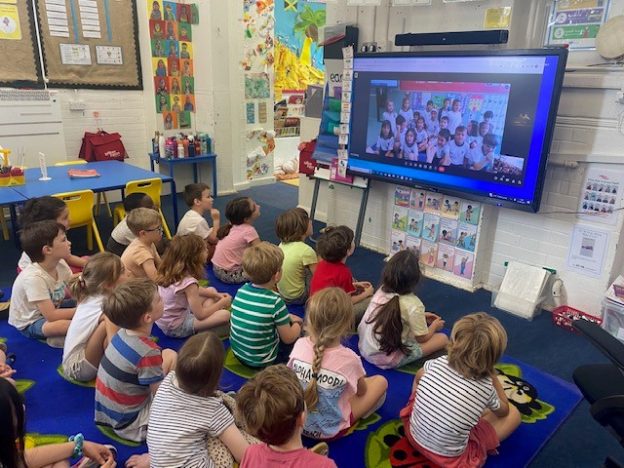Address:
William Patten Primary School
Stoke Newington Church Street
London N16 0NX
Office Manager: Rita Quigley
SENDCo: Caitlin Shaw
William Patten Primary School
Stoke Newington Church Street
London N16 0NX
Office Manager: Rita Quigley
SENDCo: Caitlin Shaw

With the exception of the Nursery, each year group from Reception (aged 4-5) through to Year 6 (aged 10-11) is grouped into two parallel classes. No class has more than thirty children and all classes are of mixed ability.
Each class has a class teacher, who normally remains with the class for one year. Teachers are supported by Teaching Assistants (TAs). Other specialist staff, including those that work with individual children, also work throughout the school.
The Nursery offers part-time morning and afternoon sessions as well as full-time all-day sessions; children usually spend three terms in the nursery. The Nursery class teacher is supported by a full-time nursery nurse and additional staff that also assist with providing an engaging play-based learning environment.
Attendance at our Nursery does not automatically make a child eligible for acceptance into our school. Applications for a place in Reception are processed by Hackney Education and the admissions criteria that they apply are published on their website. The school has no influence or discretion in the application process or the allocation of Reception places.
We take great care to help children settle as smoothly as possible. We hold meetings with every child and their family to form closer links prior to children starting Nursery. Initially, when children start Nursery parents are encouraged to stay for the first half-hour of the session – to help their child settle and begin to feel confident and comfortable at school.
The Nursery is an integral part of the school and children benefit from many of the school facilities (music lessons, workshops etc.) and occasionally attend assemblies with older children. We enjoy working with parents and value their contributions immensely.
Before children start Reception, we invite parents and children to visit the school, meet with the Headteacher/class teacher and visit their future classroom. We plan a staggered start for Reception children, so that small groups of children start over the course of three days. Following this gradual start, Reception children then attend school for half-days for the first two weeks or so. We believe that this process (Headteacher meetings, home visits, staggered start and two weeks of half-days) provide children with a calm, secure start to Reception allowing them to become confident and comfortable with their surroundings, classmates and their teachers. Parents are welcome to settle their child and watch the start of the school day during this settling-in period.
Reception teachers are supported by a full-time Teaching Assistant (TA). Additional adults also help in Reception – either to help with teaching phonics, additional support or run intervention groups etc. Children also have weekly music sessions, taught by our specialist music teacher, as well as taking part in whole school activities such as gymnastic sessions, assemblies and workshops.
Years 1 and 2 have a full-time Teaching Assistant who supports the class teacher. There is also additional support for reading, writing, maths and phonics. Where appropriate, specialist staff are deployed, including those that work with individual children with EHCPs.
Each Key Stage 2 class have a Teaching Assistant (TA) available to support in lessons. Additionally, where appropriate, specialist staff are deployed, including those that work with individual children with EHCPs.
At the end of Reception, prior to starting Year 1, classes are carefully mixed to achieve a balance of ability, age, gender, culture, friendship groups, home language, special needs and confidence.
The balance between parallel classes is kept under review to ensure that each class works well – academically and socially. Very occasionally, it is necessary to re-balance a year group. This is always done in the best interests of both the group and individual members.